Showing 1-20 of 265 results
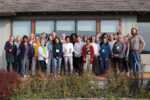
A Path to Farm Community
Farmers, like all of us, need time and strength to focus on relationships, health, healing and a sense of belonging, yet many agriculture service providers are unable to give wellness the attention it needs. A recent Cornell Small Farms project, Reconnecting with Purpose, aimed to provide farmers with additional support to cope with the hard […]
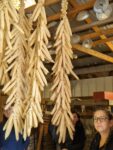
Water and Wonderment Abounds on WI State Tour for SARE Fellows
They gathered from their respective home waters—the Yahara, Shenendoah, Black Root, Vermillion, Marias, from Kansas, and all the way to the Delta and Everglades Basin—in fellowship to learn from the foodsheds of the dairy state and each other. State-based study tours are the current that charts the course for participants of the SARE Fellows program. […]
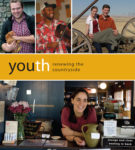
Youth Renewing the Countryside
Smart, young people are returning to the roots of American Agriculture-- roots steeped in a tradition and culture of diversity, quality and respect for the Earth. Full of brilliant color photographs, Youth Renewing the Countryside shares remarkable stories of young people in each state changing the world through rural renewal. Produced by Renewing the Countryside in […]
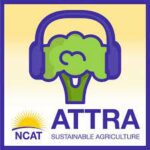
New Podcast Episode: The Commercial Potential of Mulberries in the Midwest
In this episode of ATTRA's Voices from the Field podcast, Weston Lombard and NCAT Sustainable Horticulture Specialist Guy Ames discuss the commercial possibilities and challenges mulberries present, along with different cultivars and growing strategies.

Growing New Markets for Specialty Crops
This episode of Voices from the Field is part of a series co-produced by ATTRA and SARE that explores the different ways farmers are working to create new local markets for specialty and niche crops. Each partner episode will address a different production system or crop–from endives to small-grain value chains–and will feature farmers sharing […]

Changing Lives Through Better Communication
After a particularly stressful first year of farming on his own, organic vegetable farmer Marc Cavatorta was seeking support from other farmers. He found it when he attended a reflective retreat held not far from his farm in Palermo, Maine. “The retreat offered a chance to be with other farmers who were willing to talk […]
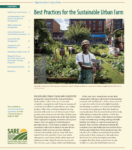
Best Practices for the Sustainable Urban Farm
For decades, urban farms and community gardens have helped meet the demand for fresh, local produce. Urban farms are diverse and adaptable, ranging from small farms on repurposed vacant lots to multilevel vertical farms and rooftop gardens. Often, they combine ecological farming practices with some form of infrastructure. Urban growers make clever use of their […]
New SARE Video: Ecological Weed Management at the Martens Farm
Farmers nationwide are tackling the challenge of using ecological principles to manage weeds using fewer herbicides. Understanding the biology of weeds is key to helping producers adopt innovative strategies that achieve strong yields while adapting to changing consumer preferences. Three new videos from SARE illustrate how Klaas and Mary-Howell Martens manage weeds without chemicals on […]
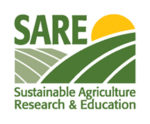
SARE Welcomes New Fellows
The Sustainable Agriculture Research and Education (SARE) program announces the addition of four new members to the SARE Fellows program. Each member represents a different region of the United States. SARE Fellows is a two year professional development experience that helps agricultural educators enhance their understanding of sustainable agriculture and build relationships with farmers and […]
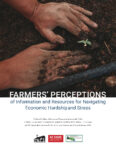
Planting Seeds of Help
Despite years of experience, fifth-generation flower farmer Leroy Hardy was facing foreclosure on his farm near Sedley, Virginia. To navigate the financial crisis, Hardy reached out to Rural Advancement Foundation International (RAFI) for mediation assistance, and he emerged with his assets intact. So when RAFI, the Land Loss Prevention Project (LLPP) and the National Center […]
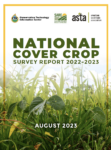
New Cover Crop Survey Data Challenges Assumptions on Role of Incentive Payments
Adapted from the Conservation Technology Information Center: A new national survey report has found that the vast majority of farmers who use cover crops don't need incentive payments to continue with the practice because of how much they appreciate its value to their land and business. According to the National Cover Crop Survey, incentives play a key […]
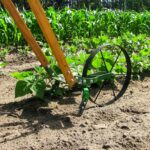
Choosing the Right Tools For Your Farm
A manual created by Ain Chike and Georgia Organics outlines hand tools, small engines, their utility descriptions and where to source them for growers in the Southeast. It allows readers to understand each tool and their practical uses. This short 4-page PDF acts as a overview for important tools to ensure efficient and productive yields […]

Concepts and Research-Based Guidelines for Forage-Livestock Systems in the Southeast Region
This guide provides concepts and research-based information on animal, environment, forage and soil topics for Extension educators and producers in the Southeast. Forage production proves to be a major challenge for livestock producers as seasonality affects the foraging systems. This manual offers guidelines and research-based information to create a productive livestock system in the Southeast […]
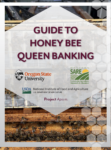
Guide to Honey Bee Queen Banking
This guide will walk you through the step-by-step process of establishing and maintaining a queen bank. The guide starts with the basics and walks the reader through each step to create a successful honey bank that includes a queen bee. Because queen bees are so critical in maintaining a bank, beekeepers center their focus on […]

Farm Education for the Deaf Community—Introduction (American Sign Language)
In this video, Monu introduces the video series created to provide farm education to the deaf community. The series is available in both in American Sign Language and Nepali Sign Language.
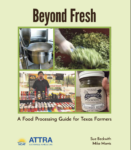
Beyond Fresh: a Food Processing Guide for Texas Farmers
A decision-making guide to planning, creating and marketing value-added food products made from sustainably-grown fruits and vegetables, written from a "farmer-first" perspective. As farmers face competition from meal-in-a-box companies, this guide aims to help farmers prosper in their own food distribution. This Food Processing Guide for Texas Farmers begins with decision-making and walks step by […]

Grazing Networks for Livestock Producers
Grazing networks promote a mutual self-help approach to learning that is based on shared local experience and that provides several benefits to participants. This publication offers suggestions for finding or starting a grazing network and provides examples of the kinds of activities grazing networks might conduct. It also contains recommendations for sustaining a grazing network […]

Virginia Hosts National SARE Fellows Tour and Training
The sustainability of farms and food-related businesses can be affected by many agricultural, social, ecological, financial, and cultural factors and issues that can vary from state to state and from region to region. These issues range from market access and development needs to production challenges, lack of food system infrastructure such as aggregation and processing, […]
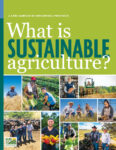
New SARE Bulletin: What is Sustainable Agriculture?
SARE’s newly revised What is Sustainable Agriculture? publication provides a primer to practices that can help farmers and ranchers improve the sustainability of any complex, integrated production and marketing system.
New SARE Video: Ecological Weed Management at Terra Preta Farm
Understanding the biology of weeds is key to managing these troublesome pests using ecological principles. Cultural practices such as crop rotations and cover crops paired with smart cultivation have helped many farmers successfully manage weeds while reducing or eliminating herbicide use. In three new videos from SARE, Shakera and Juan Raygoza share their experience controlling […]